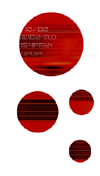

 |
 |
scientific program electroacoustic musics around set theory music analysis tools musicnetwork workshop professional week ircam forum workshops free software for music international multichannel sound forum performing arts and technologies dance and new technologies access to sound heritage thematic evenings demonstration stands artistic program set theory concert music in creation concert cursus concerts opera "one" sound installations open house weekend technologies gallery conferences demonstrations workshop-performances workshops and films ircam laboratories linux install-party concert distribution on internet associated events resonances night at glaz'art émilie simon at la cigale suguru goto reseaunances guided tours of ircam and the multimedia library resonances in pictures resonances 2002 
|
MAX SOFTWAREHistory and perspectives in live performances.MAX, invented at Ircam in the middle of the eighties and up till now licensed by Cycling'74, keeps on establishing itself as the world standard of musical interactivity. Its history and present evolution will be analyzed in the light of recent musical and multimedia projects.
With the participation of : David Zicarelli (developer of Max/MSP software and director of Cycling'74), Miller Puckette (inventor of Max and professor at the University of San Diego, retransmission from UCSD), Norbert Schnell (Head of the Real Time Applications Team, Ircam). PROGRAMAbout Modularity Speaker : David Zicarelli A modular system gives you a set of pieces -building blocks- that fit together. The idea is simple and universal as children's toys. Modular systems reflect a view of the world in which there is no single right answer. I believe this is ideal when applied to music and art, where there exists an infinite space of possibilities for creative expression. But just as many solutions are possible with a modular system, many dimensions of modularity are also possible. In other words, many ways of dividing up the world into components and many ways of systematizing their interconnection. I will provide examples of "modular thinking" as it has been practiced in my little corner of the world, using Max/MSP and related technologies. I will also suggest some of the newer dimensions of modularity that I want to explore in the future. Finally, I want to contrast the modular and non-modular (what I call "rationalized") approaches, identifying where each is strongest. The answer is paradoxical : a modular system is best for building a non-modular system, and vice versa. |
|||||||||||||||||||||||||||||||
 |
Organization Committee Copyright Ircam-Centre Pompidou 2003 |